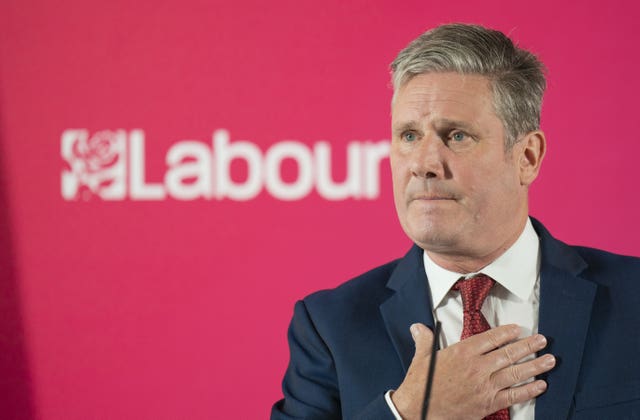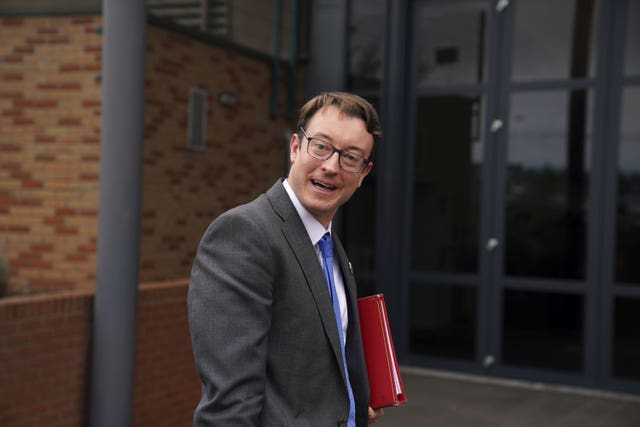The two remaining Tory leadership contenders are facing a call to more than double the level of Government support to low-income families to avert a cost-of-living crisis “catastrophe” over the winter.
Seventy charities and community organisations have signed an open letter to Liz Truss and Rishi Sunak warning families on benefits face a £1,600 shortfall over the coming months, despite receiving £1,200 in the last Government support package.
In the letter, co-ordinated by the Joseph Rowntree Foundation (JRF), they warn soaring energy bills mean many low-income households are already facing in a choice between skipping meals or not heating their homes properly, and that the situation is only set to get worse.
“Many of our organisations work directly with these families and are becoming overwhelmed, too often unable to provide the support so desperately needed,” the letter said.
NEW: The impact of the cost-of-living crisis on low-income families is the gravest issue our country faces.
We, along with 70 other charities, have written to @trussliz and @RishiSunak for their reassurance that families will receive sufficient support.
— Joseph Rowntree Foundation (@jrf_uk) August 14, 2022
“This situation cannot be allowed to continue.
“As the prospective leaders of this country, we urge you to act now to demonstrate the compassion and leadership needed to tackle this issue head on.
“We ask you both to pledge that, under your premiership, everyone who needs it will be properly supported when they hit hard times.
“This means ensuring that, at a minimum, the social security system always provides people with enough to be able to afford the essentials.”
JRF chief executive Paul Kissack, chief executive at the Joseph Rowntree Foundation, said: “People are already selling their possessions, taking on risky debt and building up arrears they may never be able to pay back.
“And things are about to get far worse.

“Planning for a substantial support package needs to start immediately.
“Without it, vulnerable people will face a catastrophe on a vast scale when winter sets in.
“The consequences of sitting idly by are unthinkable.”
Dan Paskins of Save The Children, which is also backing the letter, said: “When energy bills rocket in the autumn, families who already have it tough are going to find things even harder.
“Parents will face impossible choices over whether to prioritise feeding their children or heating their homes.
“At the very least, the Government should double the emergency support package announced in May to ensure families are shielded from a catastrophic winter.”
Other signatories to the letter include the Trussell Trust, the Children’s Society, Age UK, Shelter, Oxfam GB and the TUC.

Mr Sunak, who as chancellor pushed through the last £15 billion support package in May, has already said that, if he becomes prime minister on September 5, he will provide additional support targeted at the most vulnerable, although he has yet to put a firm figure on it.
Ms Truss, who has previously said she is opposed to to further “handouts”, has insisted that she has not ruled out additional direct payments, although her priority is tax cuts which, she argues, are needed to kickstart economic growth.
Meanwhile the pressure on the candidates to do more is expected to intensify when Labour leader Sir Keir Starmer sets out his plans for tackling the cost-of-living crisis on Monday.
They are expected to include a freeze on the energy price cap at the current rate of £1,971 for the average household amid warnings it is likely to rise to £3,500 in October going up to more that £4,000 in the new year as the pressure on global oil and gas prices continues.
Earlier one of Ms Truss’s most prominent supporters suggested she could strip a planned £400 discount on energy bills – which was part of the last support package – from high earners.
Treasury Chief Secretary Simon Clarke said the payment – which is due to go to all households – was “not really an authentically Conservative solution to this problem”.
He told The Sunday Telegraph: “I do find it pretty odd that high earners are receiving £400 off their bills.
“It is not an ideal outcome, putting it very mildly, that people who don’t need it are receiving quite substantial sums of money from the state. That is not, frankly, a targeted package, is it?”




Comments: Our rules
We want our comments to be a lively and valuable part of our community - a place where readers can debate and engage with the most important local issues. The ability to comment on our stories is a privilege, not a right, however, and that privilege may be withdrawn if it is abused or misused.
Please report any comments that break our rules.
Read the rules here